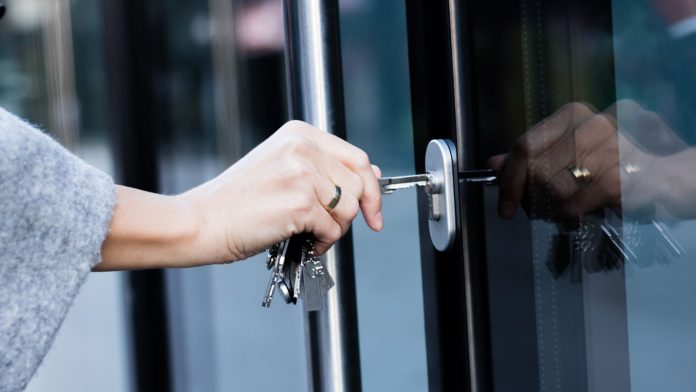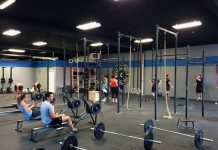How to Choose the Right Commercial Door and Locks for Your Business
Choosing the right commercial doors and locks is important in protecting your property while keeping your operations smooth and secure. The right combination improves not only security but also efficiency, appearance, and peace of mind.
When selecting doors and locks, you should take into account the layout of your facility, how often it is used, and any safety regulations. This will help you choose the right doors and locks for your business.
Identifying Your Walls Type
Before choosing locks and doors, consider the structure they’ll be attached to. Different materials, such as masonry, drywall, and concrete, require different installation methods. Solid steel doors are suitable for heavy walls due to their strength and fire resistance, while aluminum or composite doors work better with lightweight drywall.
Fire-rated materials, insulation, or reinforcements within your walls also affect compatibility and compliance. Don’t forget to measure clearance and frame design. Planning around your wall type early will avoid installation delays and ensure a secure, lasting fit.
Types of Commercial Door
The purpose and traffic level of your building determines which type of door best suits your needs. Common options vary by durability, style, and material.
● Hollow Metal Doors: Strong, fire-rated, and impact-resistant. It is ideal for industrial sites or back entrances that require maximum security and wear resistance.
● Aluminum Doors: These sleek and modern doors are perfect for retail or commercial spaces where visibility and aesthetics are important. They are lightweight and weather-resistant.
● Wood Doors: Often used indoors, wood doors offer a professional look. They’re not recommended for high-moisture or high-traffic areas due to wear and warping.
● Fiberglass Doors: Durable and low maintenance, suitable for chemical or humid environments. They resist corrosion and are a practical choice for long-term performance.
Choosing the door types your business needs will help you reduce maintenance and maximize its performance over time.
Different Locks for Commercial Doors
Commercial locks and doors must fit together to create multiple layers of security. Each type of lock is designed for a specific use. Here are the different locks you may need.
● Wireless Locks
Wireless locks use Bluetooth or Wi-Fi and connect to digital access control systems, making them ideal for businesses with rotating users or shared spaces. You can grant or cancel access remotely, track who enters, and do not need to rekey when staff changes. They’re flexible but need stable networks.
● Mortise Locks
Mortise locks are embedded into the door, providing strong security for entry points. Due to their durability and resistance, they’re common in commercial buildings. Though more complex to install, mortise locks work well with levers or knobs and support high-traffic use. They are ideal for exterior or main doors.
● Deadbolt Locks
Deadbolts are a basic but effective lock type. Use them in low-traffic areas like storage rooms or offices. Double-cylinder models offer added security but may restrict emergency exits, so placement matters. Choose ANSI-rated versions for commercial use.
● Smart Locks
Smart locks support keyless entry via apps, biometrics, or access codes. They’re ideal for multi-user environments and reduce physical key management. Look for encryption, alerts, and battery backup to ensure consistent performance and security.
Grades of Commercial Door Locks
Commercial locks are graded to help you choose based on durability and function. Here are three primary ANSI/BHMA grades you need to know.
● Grade 1: Made especially for outdoor or high-traffic areas, Grade 1 locks are the strongest. They provide the strongest defense against forced entry and are ideal for areas that need tight security.
● Grade 2: For inner doors or external entries with little traffic, grade 2 locks provide excellent security. They manage to balance quality and affordability.
● Grade 3: It is usually used in low-risk business applications or homes, grade 3 locks are the least secure. For commercial buildings’ main entrances, they are not recommended.
Final Thoughts
Choosing commercial doors and locks is more than choosing something that fits. You must check the door to your wall and the lock for security. Consider how your space is used, who needs access, and how often entry points are used. Each element should support both security and day-to-day functions.
From simple deadbolts to advanced wireless or smart systems, your lock and door setup should reflect your business’s needs today and in the future. Investing in the right commercial doors and locks adds lasting protection to your space. With proper planning, you can create an accessible, secure, and efficient environment for all.










